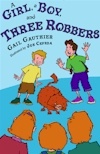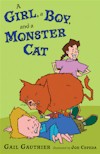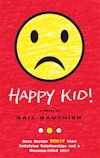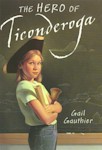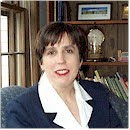The March/April issue of
The Horn Book does a lot on editors with an article on
Ursula Nordstrom and some shorter pieces by contemporary authors on their relationships with their editors.
I have to admit, if it were not for
The Horn Book, I wouldn't know who Ursula Nordstrom was. Nonetheless, I believe I've read every word they've ever published about the woman, and I read every word of this issue's
The UN Tapes by
Leonard Marcus.
The UN Tapes is a collection of first person recollections of Nordstrom put together from interviews Marcus did with people who knew her when he was working on the book
Dear Genius. I was left with two reactions:
1. The Ursula portrayed in these accounts and I probably would have had nothing to do with each other, and thus would have gotten along very well.
2. As I read along, I felt poor Ursula (I should call her Ms Nordstrom) was being violated a good twenty years after her death and even longer after she was a mover and shaker in publishing. As a general rule, I'm not at all bothered by the exposure of historical figures' warts. I
like humanity in history. But while I understand why Nordstrom is a giant in our field, I question whether she is a big enough figure in the overall scheme of things to justify exposing so very much of her vulnerability. The tone I heard in this article was often, "The queen is dead. Now's my chance to voice a little simmering resentment in as nonjudgmental a manner as I can muster."
Or maybe I just like Ursula more than I think I do.
Other articles in the magazine discuss authors' personal relationships with their editors. Those pieces filled me with anxiety because I barely have a personal relationship with my editors. Kathy and I used to talk about
The X-files a bit when we first knew each other, and Susan and I went to the same university. But she doesn't get the alumni magazine anymore, and I don't think either one of us gives a damn about collegiate sports, so once the work's done we don't have much to talk about other than whether or not we had a good time over the holidays. (We always do.) Years ago, people at
Readerville used to talk about buying their editors Christmas presents. I thought, Come on, who does that? Now I'm wondering if maybe everyone does, and I didn't get the memo.
Susan went to Bologna and has been out of the office for a couple of weeks. Perhaps I should run out and get her a welcome home gift? Maybe I should haul my heinie into New York and make her go out to lunch with me?
Won't she think I'm stalking her?
By the way,
Kathleen Krull has the final word on editors in
The Horn Book's
Cadenza feature. It's called
How a Children's Book Manuscript Gets Bought (or Not): The Inside Story, and it's hysterical.
Labels: The Horn Book

